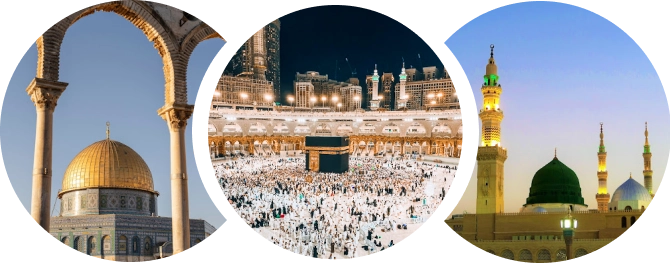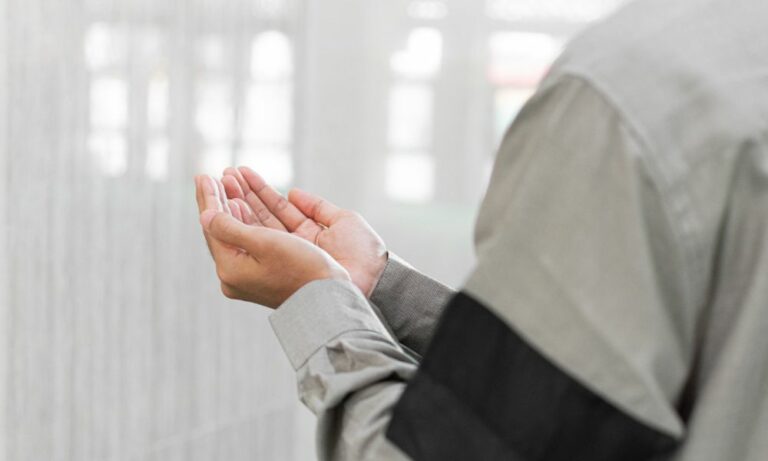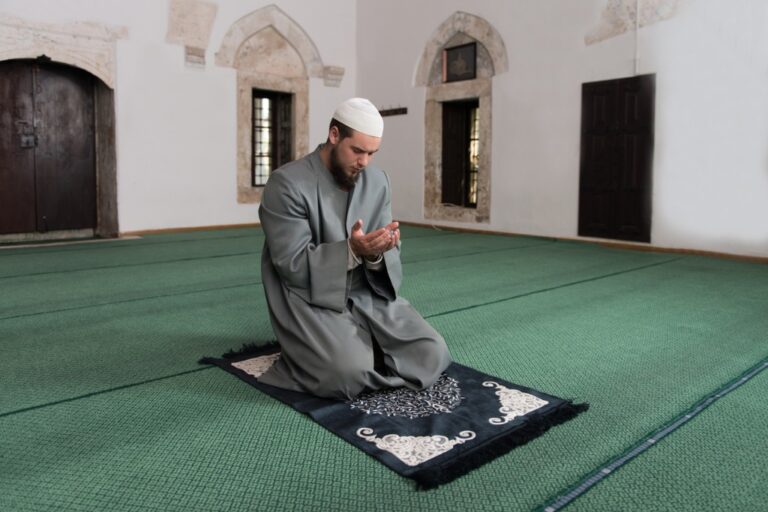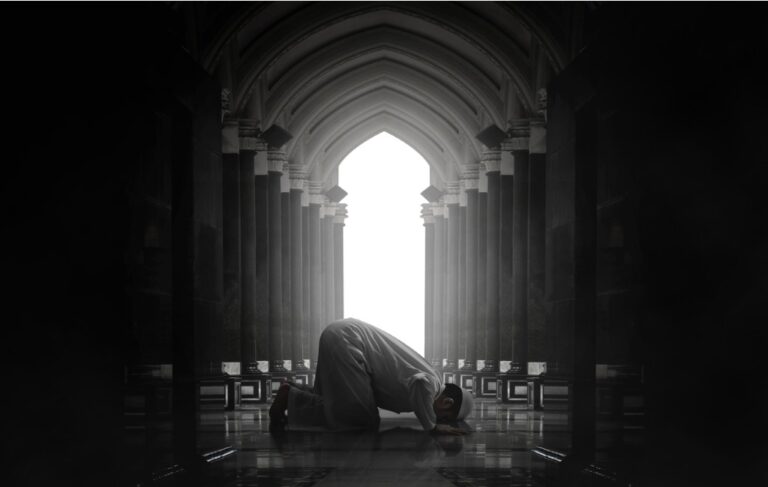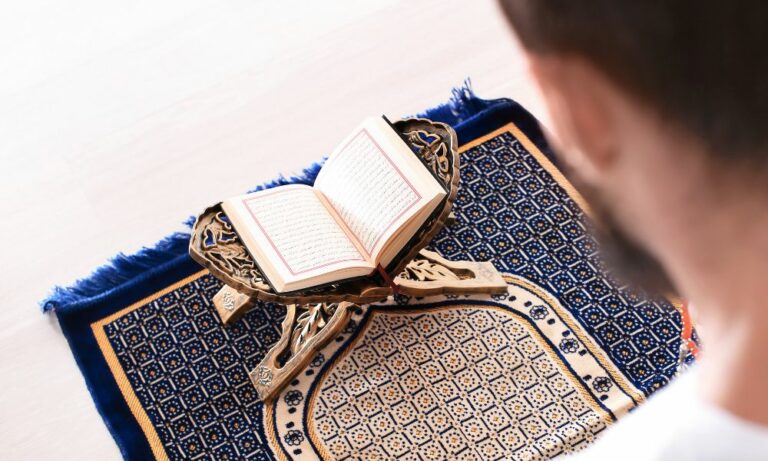What is the Dua Qunut Prayer?
Have you ever wondered about the significance of the Dua Qunut in your prayer routine? This special Dua, or supplication, is a powerful aspect of the Islamic prayer often recited during Witr prayers and times of calamity.
In this article, we will delve into the roots of Dua Qunut – its meaning, importance, and when it’s recited. So, invite peace into your life as we explore how this significant prayer can enhance your spiritual journey!
Understanding Qunut: Definition and Meaning


Qunut is an Arabic word that signifies obedience, while in the context of prayer, it refers to a specific Dua made during the Witr Salah. This particular form of salat combines physical postures and spiritual invocations to seek Allah SWT’s mercy and guidance.
With profound words loaded with meaning, Qunut allows believers to reach out to God sincerely. At its core, Qunut pushes individuals closer to piety by reinforcing their faith daily.
So when Muslims recite the Dua e Qunoot or Dua al Qunut in their Witr prayers, they are essentially asking Allah SWT to make them closer to Him, and guide them towards the right path.
When is Dua Qunut Recited?


Dua Qunut is recited during the regular occurrence of Witr prayer and during times of calamity, known as Qunut al-Nazilah.
Regular Occurrence in Witr Prayer
The recitation of Dua Qunut is frequently included in the Witr prayer, a highly recommended act of worship in Islam. It is commonly recited after standing up from ruku’ in the last rak’ah and is an essential part of this night-time prayer.
Several narrations confirm the practice of including Du’a al-Qunot within the Witr salah, indicating its frequency. Although some variants of Dua-e-qunoot exist, its inclusion remains fundamentally consistent across other Muslim regions and cultural practices.
During Times of Calamity (Qunut al-Nazilah)
In times of widespread ailment or disaster, Muslims seek solace and divine intervention through the Qunut al-Nazilah prayer. When the Muslim community faces a significant crisis or challenge, this unique form of Qunut prayer emerges.
During times of great difficulty for the Muslim Ummah, the Prophet Muhammad invoked this practice.
What is the Specific Wording for Qunut?


The specific wording for Qunut in Arabic text, transliteration, and English translation is shown below. Read on to discover the exact words of this powerful supplication in prayer.
Arabic Text
اللَّهُمَّ اهْدِنِي فِيمَنْ هَدَيْتَ وَعَافِنِي فِيمَنْ عَافَيْتَ وَتَوَلَّنِي فِيمَنْ تَوَلَّيْتَ وَبَارِكْ لِي فِيمَا أَعْطَيْتَ وَقِنِي شَرَّ مَا قَضَيْتَ إِنَّكَ تَقْضِي وَلاَ يُقْضَى عَلَيْكَ وَإِنَّهُ لاَ يَذِلُّ مَنْ وَالَيْتَ وَلاَ يَعِزُّ مَنْ عَادَيْتَ تَبَارَكْتَ رَبَّنَا وَتَعَالَيْتَ
Transliteration
Allahumma ihdini feeman hadayt, wa a’fini fiman afait, wa tawallani fiman tawallait, wa barik Li fima atait, wa qini sharra ma qadait, fa Innaka taqdi wa la yuqda Alaik, wa innahu la yadhillu man walait, [wa la yaizzu man adayt], tabarakta Rabbana wa ta’alait.
The text is taken from: Dua e Qunoot -Witr Dua- in English, Arabic & Transliteration | islamtics
English Translation
“O Allah, guide me among those Thou hast guided, grant me security among those Thou hast granted security, take me into Thy charge among those Thou hast taken into Thy charge, bless me in what Thou hast given, guard me against the evil of what Thou hast decreed, for Thou dost decree, and nothing is decreed for Thee. He whom Thou befriendest is not humbled. Blessed and Exalted art Thou, our Lord.” Sunan Abi Dawud 1425.
Qunut e Nazila


Arabic Text
اللَّہُمَّ اغْفِرْ لَنَا ، وَلِلْمُؤْمِنِینَ وَالْمُؤْمِنَاتِ وَالْمُسْلِمِینَ وَالْمُسْلِمَاتِ ، وَأَلِّفْ بَیْنَ قُلُوبِہِمْ ، وَأَصْلِحْ ذَاتَ بَیْنِہِمْ ، وَانْصُرْہُمْ عَلَی عَدُوِّکَ وَعَدُوِّہِمْ ، اللَّہُمَّ الْعَنْ کَفَرَۃَ أَہْلِ الْکِتَابِ الَّذِینَ یَصُدُّونَ عَنْ سَبِیلِکَ ، وَیُکُذِّبُونَ رُسُلَکَ ، وَیُقَاتِلُونَ أَوْلِیَائَ کَ اللَّہُمَّ خَالِفْ بَیْنَ کَلِمَتِہِمَ ، وَزَلْزِلْ أَقْدَامَہُمْ ، وَأَنْزِلْ بِہِمْ بَأْسَکَ الَّذِی لاَ تَرُدُّہُ عَنِ الْقَوْمِ الْمُجْرِمِینَ
Transliteration
ạllãhumã ạigẖ̊fir̊ lanā , walil̊mū̊̉minina wāl̊mū̊̉mināti wāl̊mus̊limina wāl̊mus̊limāti , wā ̉ lif̊ baẙ̰na qulūbihim̊ , wā ̉ aṣ̊liḥ̊ zāta baẙ̰nihim̊ , wān̊ṣur̊hum̊ ʿalay̰ ʿadūĩḵa waʿadūĩhim̊ , ạllãhumã ạil̊ʿan̊ ḵafarata ā ̉ aہhlil̊ḵitābi ạllãzina y̰aṣudũwna ʿan̊ sabiy̰liḵa , way̰uḵudẖĩbūna rusulaḵa , way̰uqātilūna ā ̉ aẘliy̰āyả ḵa ạllãhumã kẖālif̊ baẙ̰na ḵalimatihima , wazal̊zil̊ ā ̉ aq̊dāmahum̊ , wā ̉ an̊zil̊ bihim̊ baā ̉ ̊saḵa ạlãdẖiy̰ lā tarudũhu ʿanĩ ạl̊qaẘmi ạl̊muj̊rimina
English translation
O Allah! May we forgive all believing and Muslim men and women. Put peace in their hearts, reform them, and help them against their enemies. O Allah! Curse those disbelievers of the People of the Book who obstruct Your path and who deny Your Messengers and fight with Your friends. O Allah! Put discord among them and make their feet stagger and send down upon them a punishment which You do not turn away from the guilty nation.
Sunan Al Kubra Bayhaqi Hadees: 3143 Arabic Hadees: 3143
How to Perform Dua Qunut?
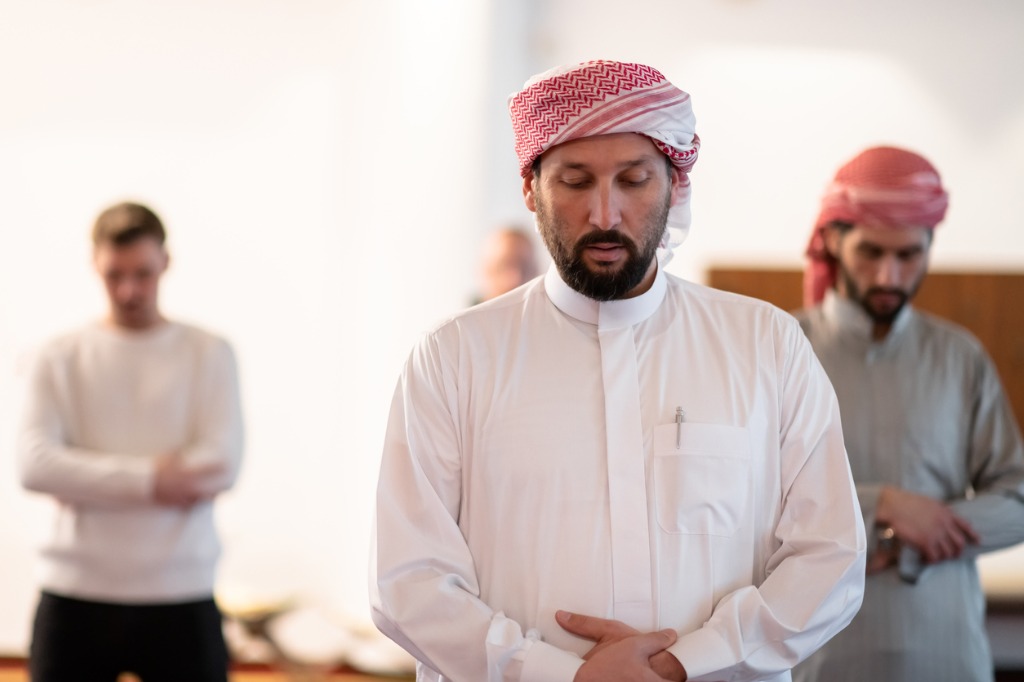

Performing Dua Qunut involves standing after the Ruku (bowing) in prayer and raising your hands to shoulder level, then reciting the supplication with complete focus and sincerity.
Position in the Prayer
There are two positions in which we recite Dua Qunut. Both are valid.
According to a hadith Prophet Muhammad PBUH used to recite Dua e Qunoot before Ruku:
أَنَّ رَسُولَ اللَّهِ ـ صلى الله عليه وسلم ـ كَانَ يُوتِرُ فَيَقْنُتُ قَبْلَ الرُّكُوعِ .
It was narrated from Ubayy bin Ka’b that the Messenger of Allah (ﷺ) used to pray Witr, and he would recite Qunut before Ruku’. Sunan Ibn Majah 1182
While in some other hadith, the Prophet Muhammad PBUH used to recite it after ruku and after saying “Sami Allahu liman Hamidah, Rabbana lakal Hamd.”
You will also observe this in Masjid al-Haram, Mecca; they follow this method. And according to the famous scholar Shaykh Ibn Uthaymin, both views are correct.
Some scholars also believe that reciting Qunoot after ruku applies to Qunoot e Nazila, which, as we know, is recited during tough times.
So, if someone asks, should I recite Qunoot before or after ruku?
Then the general answer is: It’s up to you; both sides have authentic evidence, and choosing either of them is totally valid.
The Messenger of Allah (ﷺ) recited the supplication (Qunut) daily for a month at the noon, afternoon, sunset, night, and morning prayers. When he said: “Allah listens to him who praises Him” in the last rak’ah, invoking a curse on some clans of Banu Sulaym, Ri’l, Dhakwan, and Usayyah, and those who were standing behind him said: Amen. Sunan Abi Dawud 1443
Actions and Gestures
According to Hanafi Fiqh, if you recite qunoot before ruku, you must first say the takbir while raising your hands as you do at the start of the prayer and then lowering them.
While the Hanbali fiqh prefers reciting qunoot after ruku and by raising one’s hands like you do when making Dua.
The Importance and Significance of Dua Qunut


This powerful invocation assists followers in finding solace and remaining resilient in the face of adversity. It also emphasizes the importance of expressing gratitude and acknowledging blessings in all aspects of life.
Another essential aspect of Dua Qunut is encouraging obedience to Allah SWT’s instructions, guiding believers away from actions that may displease Him. Furthermore, daily recitation strengthens faith and fosters closeness with Allah SWT, making it essential for spiritual growth and development within Islam.
Common Questions About Dua Qunut
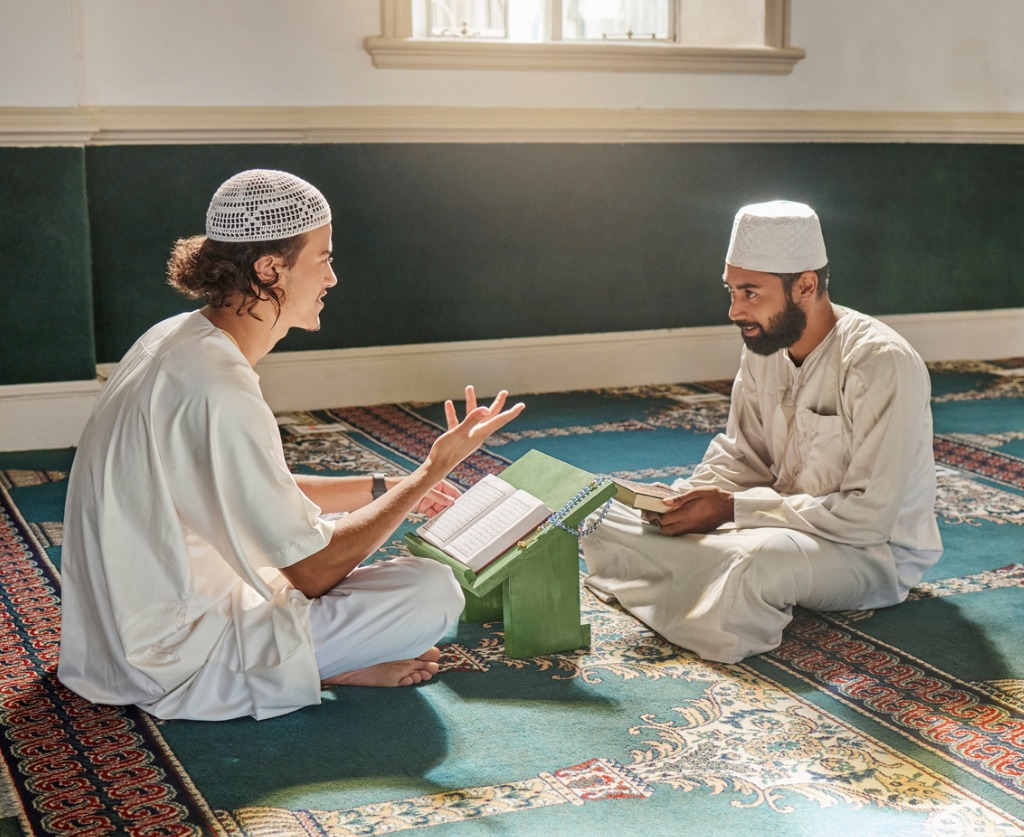

Is Dua Qunut compulsory in Witr? Learn about the significance and alternatives if you don’t remember or want to read something different.
Is Dua Qunut Compulsory in Witr?
Scholars have different views on whether Dua Qunut is required in the Witr prayer. Some scholars believe it is necessary, while others believe it is recommended. The disagreement stems from the lack of explicit evidence in the Quran or Sunnah stating its imposition.
Therefore, Muslims have different practices regarding reciting Dua Qunut during the Witr prayer, with some including it and others omitting it altogether, like the Shafi school of thought.
What if I Don’t Remember Dua Qunut?
Dua Qunut, according to some scholars, is not obligatory, it is Sunnah. That’s why If you haven’t memorized it, you are not sinful, but if you do, it would be great.
If you cannot memorize it, you may use a booklet or paper on which Dua e Qunoot is written and recite it.
Remember that the essence of Dua is sincerity and connecting with Allah SWT from the bottom of your heart. Even if you don’t remember the exact words of Dua Qunut, use this opportunity in prayer to express your personal needs and desires to Allah SWT.
What to Read Instead of Dua Qunut?
Instead of Dua Qunut, you can recite other supplications during prayer. There are several recommended prayers and verses from the Quran that you can choose to read instead. For example, you can recite:
رَبَّنَآ ءَاتِنَا فِى ٱلدُّنْيَا حَسَنَةًۭ وَفِى ٱلْـَٔاخِرَةِ حَسَنَةًۭ وَقِنَا عَذَابَ ٱلنَّارِ
Rabbana Atina Fid Dunya hasana wafil akhirati hasana waqina azaban naar.
“Our Lord! Grant us the good of this world and the Hereafter, and protect us from the torment of the Fire.” 2:201
These alternative prayers and verses can help enhance your connection with Allah SWT and bring solace during worship.
Conclusion
The Dua qunut prayer is a supplication made during worship at a specific point while standing. It is performed in the Witr prayer and during times of calamity. Its common position is after standing up from ruku in the last rak’ah of the Witr prayer.
The Prophet and his companions followed the practice of reciting Qunut during Witr and times of calamity, making it an integral part of the Muslim worship.
FAQs
Why do Muslims perform this Dua qunut?
Muslims perform this supplication to seek Allah SWT’s blessings and protection for weak and oppressed believers against infidels and troubles caused by calamities.
Does every Muslim have to pray using Dua Qunut according to Sunnah?
It’s not considered obligatory to recite Dua Qunut. However, it is regarded as Sunnah, so it’s better to recite it.
ما هو دعاء القنوت؟
هل تساءلت يومًا عن أهمية دعاء القنوت في روتين صلاتك؟ يعد هذا الدعاء الخاص، أو الدعاء، جانبًا قويًا من الصلاة الإسلامية التي يتم تلاوتها غالبًا أثناء صلاة الوتر وأوقات الكوارث.
في هذه المقالة سوف نتعمق في أصول دعاء القنوت ومعناه وأهميته وزمان قراءته. لذا، ادع السلام إلى حياتك بينما نستكشف كيف يمكن لهذه الصلاة المهمة أن تعزز رحلتك الروحية!
فهم القنوت: التعريف والمعنى


القنوت كلمة عربية تعني الطاعة، بينما في سياق الصلاة تشير إلى دعاء محدد يتم إجراؤه أثناء صلاة الوتر. يجمع هذا الشكل الخاص من الصلاة بين الأوضاع الجسدية والدعاء الروحي لطلب رحمة الله سبحانه وتعالى وإرشاده.
بكلمات عميقة محملة بالمعاني، يتيح القنوت للمؤمنين التواصل مع الله بإخلاص. في جوهره، القنوت يدفع الأفراد أقرب إلى التقوى من خلال تعزيز إيمانهم يوميا.
فعندما يقرأ المسلمون دعاء القنوت أو دعاء القنوت في صلاة الوتر، فإنهم في الأساس يطلبون من الله سبحانه وتعالى أن يقربهم إليه، وأن يرشدهم إلى الطريق الصحيح. .
متى يقرأ دعاء القنوت؟


دعاء القنوت يُقرأ في انتظام صلاة الوتر وفي أوقات النوازل، وهو ما يعرف بقنوت النزيلة.
العادة في صلاة الوتر
يتم تضمين تلاوة دعاء القنوت بشكل متكرر في صلاة الوتر، وهي عبادة موصى بها للغاية في الإسلام. وعادة ما يتم قراءتها بعد القيام من الركوع في الركعة الأخيرة وهي جزء أساسي من صلاة الليل.
تؤكد عدة روايات إدخال دعاء القنوت في صلاة الوتر، مما يدل على تكراره. على الرغم من وجود بعض الأشكال المختلفة لدعاء القنوت، إلا أن تضمينه يظل ثابتًا بشكل أساسي عبر المناطق الإسلامية والممارسات الثقافية الأخرى.
في زمن النوازل (قنوت النزيلة)
في أوقات انتشار المرض أو الكوارث، يطلب المسلمون العزاء والتدخل الإلهي من خلال صلاة القنوت النزيلة. عندما يواجه المجتمع المسلم أزمة أو تحديًا كبيرًا، يظهر هذا الشكل الفريد من صلاة القنوت.
خلال الأوقات الصعبة التي واجهتها الأمة الإسلامية، استحضر النبي محمد هذه الممارسة.
ما هي الصياغة الخاصة بالقنوت؟


تظهر أدناه الصياغة المحددة للقنوت في النص العربي، والترجمة الحرفية، والترجمة الإنجليزية. تابع القراءة لتكتشف الكلمات الدقيقة لهذا الدعاء القوي في الصلاة.
النص العربي
اللَّهُم اهْدِنِي فِيمَنْ هَدَيْتَ وَعَافِنِي فِيمَنْ عَافَيْتَ وَتَوَلَّنِي فِيمَنْ تَوَلَّيْتَ وَبَارِكْ لِي فيمَا أَعْطَيْتَ وَقِنِي شَرَّ ما قَضَيْتَ إِنَّكَ تْضِي وَلاَ يُقْضَى عَلَيْكَ وَإِنَّهُ لاَ يَذِلُّ مَنْ وَالَيْتَ وَلاَ يَعِزُّ مَنْ عَادَيْتَ تَبَارَكْتَ رَبَّنَا وَتَعَالَيْتَ< / ع>
الترجمة الصوتية
اللهم إهديني فيمن حديت، وأفيني فيمن آفيت، وتولاني فيمن تواليت، وبريك لي فيما أتيت، وقيني شرا ما قضايت، فا إنك تقدي ولا يقضى عليك، وَ إنَّهُ لَيَظْلُّ مِنْ وَلاَتٍ، [ وَ لا يَأْيَزُ مِنْ أَدَيْتٍ ]، تَبَارَكْتَ رَبَّانَا وَ تَعَالَتْ.
النص مأخوذ من: Dua e Qunoot -Witr Dua- باللغة الإنجليزية، العربية والترجمة الحرفية | الاسلام
الترجمة الإنجليزية
"اللهم اهدني فيمن هديت، وآمنني فيمن عافيت، وتولني فيمن توليت، وبارك فيك" وقني في ما أعطيت، وقني شر ما قضيت، فإنك تقضي ولا يقضي عليك، ولا يذل من وتوت ربنا وتعالي». سنن أبي داود 1425.
القنوت والنزيلة


النص العربي
، وَلِّل ذugaitl ذ ذ ذ ، و ugnْصُrْہُmْ عداد عاشوَ واضعان ستَبِّلَ ، و ugیُکُذِّbُonit رضى كَاللَّهِ خَالِفْ بَيْنُ كَلِمَتِهِ ، وَزَلْزِلْ أَقَْدَامَہمْ ، وَأَنْزِلْ بِہِمْ بَأْسَكَ الَّذِي لاَ تَرُدُّہُ عَنِ الْقَوْمِ الْمُجْرِمِين
الترجمة الصوتية
الإنجليزية الترجمة
اللهم! ونغفر لجميع المؤمنين والمسلمين والمسلمات. وأدخل السكينة في قلوبهم، وأصلحهم، وانصرهم على أعدائهم. يا الله! العن كفار أهل الكتاب الذين يصدون عن سبيلك، ويكذبون رسلك، ويقاتلون مع أوليائك. يا الله! ففرق بينهم وزلج أقدامهم وأنزل عليهم عذابا لا ترده عن القوم المجرمين.
سنن الكبرى حديث البيهقي: 3143 حديث عربي: 3143
كيفية أداء دعاء القنوت؟


يتضمن دعاء القنوت الوقوف بعد الركوع في الصلاة ورفع اليدين إلى مستوى الكتفين، ثم قراءة الدعاء بتركيز وإخلاص كاملين.
الوضعية في الصلاة
هناك موضعان نقرأ فيهما دعاء القنوت. وكلاهما صحيح.
بحسب الحديث الذي كان النبي محمد صلى الله عليه وسلم يقرأ فيه دعاء القنوت قبل الركوع:
أَنَّ رَسُولَ اللَّهِ ـ صلى الله عليه وسلم ـ كَانَ يُوتِرُ فَيَقْنُتُ قَبْلَ الرُّكُوعِ .
عن أبي بن كعب أن رسول الله صلى الله عليه وسلم كان يوتر فيقنت قبل الركوع. سنن ابن ماجه 1182
وفي بعض الأحاديث الأخرى أن النبي محمد صلى الله عليه وسلم كان يقرأها بعد الركوع وبعد أن يقول "سمي الله لمن حميدة، ربنا لك الحمد".
وستلاحظ ذلك أيضًا في المسجد الحرام بمكة؛ يتبعون هذا الأسلوب. وعلى قول العلامة الشهير الشيخ ابن عثيمين كلا القولين صحيحان.
كما يرى بعض العلماء أن القنوت بعد الركوع ينطبق على القنوت والنازلة، وهو كما نعلم يكون في الأوقات الصعبة.
فإذا سألني أحد هل أقرأ القنوت قبل الركوع أم بعده؟
الإجابة العامة إذن هي: الأمر متروك لك؛ ولكلا الطرفين أدلة صحيحة، واختيار أي منهما صحيح تماما.
كان رسول الله صلى الله عليه وسلم يقنت كل يوم لمدة شهر في الظهر والعصر والمغرب والعشاء والصبح. ولما قال: "سمع الله لمن حمده" في الركعة الأخيرة، لعن على عشائر بني سليم، ورعل، وذكوان، وأسية، ومن خلفه قال: آمين. سنن أبي داود 1443
الإجراءات والإيماءات
وفقا للفقه الحنفي إذا قنت قبل الركوع يجب عليك أولا التكبير مع رفع يديك كما تفعل في أول الصلاة ثم خفضهما.< / ع>
بينما يفضل الفقه الحنبلي القنوت بعد الركوع وبرفع اليدين كما تفعل في الدعاء.
أهمية وأهمية دعاء القنوت


يساعد هذا الدعاء القوي المتابعين في العثور على العزاء والبقاء صامدين في مواجهة الشدائد. كما يؤكد على أهمية التعبير عن الشكر والاعتراف بالنعم في جميع جوانب الحياة.
هناك جانب أساسي آخر من دعاء القنوت وهو التشجيع على طاعة تعليمات الله سبحانه وتعالى، وتوجيه المؤمنين بعيدا عن الأفعال التي قد تغضبه. علاوة على ذلك، فإن التلاوة اليومية تقوي الإيمان وتعزز القرب من الله سبحانه وتعالى، مما يجعلها ضرورية للنمو الروحي والتطور داخل الإسلام.
أسئلة شائعة حول دعاء القنوت


هل دعاء القنوت واجب في الوتر؟ تعرف على أهمية القراءة والبدائل إذا كنت لا تتذكر أو ترغب في قراءة شيء مختلف.
هل دعاء القنوت واجب في الوتر؟
اختلف العلماء في جواز دعاء القنوت في صلاة الوتر. يرى بعض العلماء ضرورة ذلك، والبعض الآخر يرى أنه مستحب. والخلاف نابع من عدم وجود دليل صريح من الكتاب أو السنة على فرضه.
لذلك اختلف المسلمون في قراءة دعاء القنوت في صلاة الوتر، فمنهم من أضافه ومنهم من حذفه تمامًا، مثل المذهب الشافعي.
ماذا لو لم أتذكر دعاء القنوت؟
دعاء القنوت ليس بواجب عند بعض أهل العلم، بل هو سنة. ولهذا إن لم تحفظه فلا إثم، وإن حفظته فهو عظيم.
إذا لم تتمكن من حفظه، يمكنك استخدام كتيب أو ورقة مكتوب فيها دعاء القنوت وقراءته.
تذكر أن جوهر الدعاء هو الإخلاص والتواصل مع الله سبحانه وتعالى من أعماق قلبك. حتى لو كنت لا تتذكر كلمات دعاء القنوت بالضبط، استغل هذه الفرصة في الصلاة للتعبير عن احتياجاتك ورغباتك الشخصية لله سبحانه وتعالى.
ماذا نقرأ بدل دعاء القنوت؟
بدلاً من دعاء القنوت يمكنك قراءة أدعية أخرى أثناء الصلاة. هناك العديد من الأدعية والآيات القرآنية الموصى بها والتي يمكنك اختيار قراءتها بدلاً من ذلك. على سبيل المثال، يمكنك أن تقرأ:
رَنَآ ءَاتِنَا فِى الدُّنْيَا حَسَنَةًۭ وَفِى الْـَٔاخِرَةِ حَسَنَةًۭ وَقِنَا عَذَابَ النَّارِ
ربانة أتينا فيد دنيا حسنة وافل آخرتي حسنة وقينا عزبان نار.
"ربنا! آتنا في الدنيا حسنة والآخرة وقنا عذاب النار». 2:201
يمكن أن تساعد هذه الصلوات والآيات البديلة في تعزيز اتصالك بالله سبحانه وتعالى وتجلب العزاء أثناء العبادة.
الاستنتاج
دعاء القنوت هو دعاء يُقال أثناء العبادة في مكان محدد أثناء القيام. وتؤدى في صلاة الوتر وفي وقت النوازل. والموضع الشائع لها هو بعد الرفع من الركوع في الركعة الأخيرة من صلاة الوتر.
وكان النبي وأصحابه يتبعون عادة القنوت في الوتر وأوقات النوازل، مما جعله جزءا لا يتجزأ من عبادة المسلمين.
الأسئلة الشائعة
لماذا يقوم المسلمون بدعاء القنوت هذا؟
يؤدي المسلمون هذا الدعاء لطلب بركات الله سبحانه وتعالى وحفظه للمؤمنين الضعفاء والمستضعفين من الكفار والمتاعب الناجمة عن المصائب.
هل يجب على كل مسلم أن يصلي بدعاء القنوت حسب السنة؟
ولا يجب قراءة دعاء القنوت. إلا أنها تعتبر سنة، فالأفضل قراءتها.

